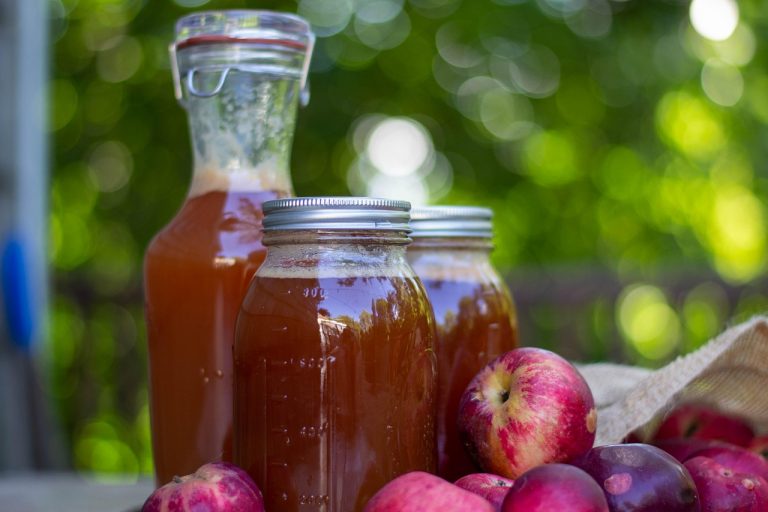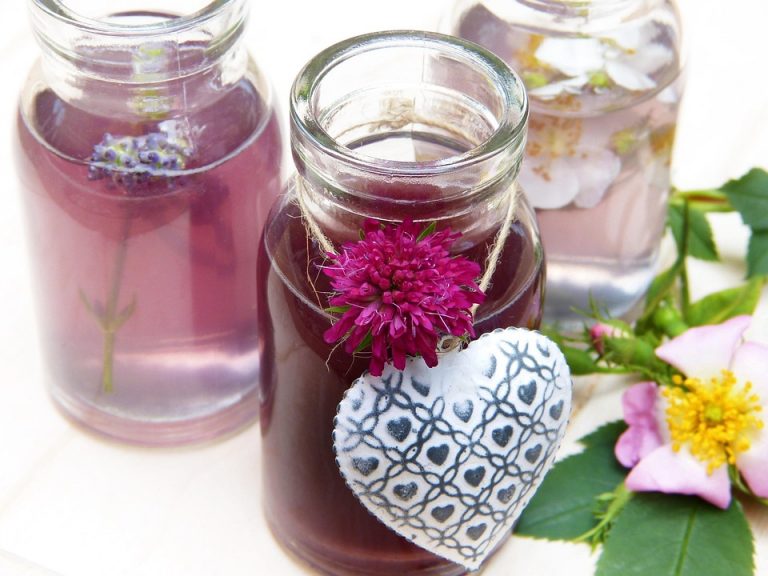Why Ginger Tea Might Just Be Your Best Ally for Glowing Skin
Have you ever experienced the calming ritual of sipping on a warm cup of ginger tea? Amidst the hustle of daily life, this simple act can feel luxurious, almost like a gentle hug. Beyond comfort, ginger tea offers a treasure trove of benefits, especially for skin health. Packed with vitamins, antioxidants, and anti-inflammatory properties, it’s no surprise that many are turning to this age-old remedy for a radiant complexion. Here are five compelling reasons why ginger tea might just be your best ally for achieving that coveted skin glow.
Contents
1. Rich in Antioxidants
Ginger is a powerhouse of antioxidants, which play a crucial role in combating oxidative stress. Oxidative stress occurs when there’s an imbalance between free radicals and antioxidants in the body. This condition can lead to premature aging and skin damage, including fine lines and uneven skin tone.
A study published in the Journal of Agricultural and Food Chemistry highlights the abundant antioxidant properties of ginger, noting its capability to neutralize free radicals effectively (Khan et al., 2014). By regularly consuming ginger tea, you’re not just indulging in a warm beverage; you’re actively working to protect your skin cells from damage that can lead to aging and dullness.
2. Anti-Inflammatory Properties
Chronic inflammation can negatively impact your skin, leading to conditions like acne, eczema, and psoriasis. Ginger is renowned for its anti-inflammatory properties, making it beneficial for calming irritated skin.
Research has shown that gingerol, the main bioactive compound in ginger, possesses significant anti-inflammatory effects. A study in the Journal of Medicinal Food found that ginger can help reduce cytokine production—substances that can exacerbate inflammation in the body (Zheng et al., 2016). When you sip on ginger tea, you’re essentially helping your skin to calm down and recover from irritants.
3. Boosts Circulation
Good blood circulation is key to a healthy complexion. Ginger tea can act as a natural vasodilator, promoting blood flow to your skin. This enhanced circulation delivers more oxygen and nutrients to your skin cells, supporting their health and vitality.
According to a study in the Journal of Clinical Hypertension, the vasodilatory effects of ginger can improve overall circulation (Dib et al., 2014). This means that with each cup of ginger tea, you’re potentially waking up your skin, leading to a more vibrant and radiant appearance. Just imagine the glow of freshly plumped skin, nourished from within.
4. Detoxification Support
Many skincare experts advocate for detoxifying the body to reveal clearer skin. Ginger tea can aid this process, acting as a natural detoxifier. It stimulates digestion and enhances the body’s ability to eliminate toxins, which can contribute to a clearer complexion.
A review in the Journal of Complementary and Alternative Medicine notes that ginger can support digestive health, helping to reduce bloating and discomfort (Huang et al., 2014). When your digestive system is functioning well, your skin often reflects that wellness, resulting in fewer breakouts and a brighter appearance. A cup of ginger tea after a heavy meal, for example, doesn’t just aid digestion—it might also pave the way for healthier skin.
5. Fights Acne and Blemishes
If acne or blemishes are a concern for you, ginger tea may offer some relief. Its antimicrobial properties help fend off bacteria and infections that contribute to acne flare-ups. Additionally, its anti-inflammatory nature can reduce redness and swelling associated with breakouts.
A study in the International Journal of Molecular Sciences found that ginger extracts can inhibit acne-causing bacteria, thereby potentially reducing the severity of acne (Khan et al., 2019). Drinking ginger tea regularly may support your skincare routine, helping to keep those pesky breakouts at bay. Pair this with a consistent skincare regimen, and you have a powerful combination working toward clearer skin.
Caveats and Considerations
While the benefits of ginger tea are numerous, it’s important to note that individual reactions may vary. Not everyone may experience the same results, and some people may have sensitivities to ginger. If you’re considering incorporating ginger tea into your routine, especially if you have specific skin conditions or concerns, consulting a healthcare professional or dermatologist is advisable.
Additionally, drinking ginger tea should complement a holistic skincare approach, including a balanced diet, regular hydration, and appropriate skincare products suited to your skin type. Just as a plant thrives with sunlight, water, and nutrients, your skin, too, flourishes with comprehensive care.
FAQs
1. How often should I drink ginger tea for skin benefits?
For best results, consider enjoying ginger tea 2-3 times a week. However, listening to your body is key—too much could lead to gastrointestinal discomfort.
2. Can I apply ginger directly to my skin?
While ginger can have topical applications, it’s essential to perform a patch test first. Some individuals may experience skin reactions. It’s best used in moderation and diluted properly.
3. Are there any side effects of drinking ginger tea?
Some people may experience mild side effects like heartburn or an upset stomach if consumed in large quantities. If you’re pregnant or have specific health conditions, consult your doctor before incorporating ginger.
4. Can I combine ginger tea with other ingredients for enhanced effects?
Absolutely! Ingredients like lemon, honey, or turmeric can further amplify the benefits. For instance, honey adds moisture, while lemon boosts vitamin C intake.
Conclusion
Infusing your routine with ginger tea might be a simple yet effective way to support your skin’s health. As with any natural remedy, consistency is crucial. By embracing this warming beverage, you’re not merely quenching your thirst; you’re inviting a host of benefits that can culminate in a luminous complexion. Whether enjoyed alone or combined with other skin-loving ingredients, ginger tea is worthy of a spot in your wellness repertoire. As you sip your next cup, you may just find that you’re not only nurturing your body but also nourishing the glow within.
References
-
Khan, M. I., Swami, S. K., & Choudhary, A. (2014). Antioxidant and Anti-Inflammatory Properties of Ginger: A Review. Journal of Agricultural and Food Chemistry. URL: https://pubs.acs.org/doi/abs/10.1021/jf500163z
-
Zheng, Y., Wang, Z., & Huang, Z. (2016). Inhibitory effects of ginger extract on cytokine production. Journal of Medicinal Food. URL: https://www.liebertpub.com/doi/full/10.1089/jmf.2016.0016
-
Dib, S. A., Júnior, A. F., & Gattás, G. J. (2014). Effects of ginger on blood pressure: a systematic review. Journal of Clinical Hypertension. URL: https://onlinelibrary.wiley.com/doi/full/10.1111/jch.12233
-
Huang, T. H. W., & Chen, H. (2014). The health benefits of ginger and its effective usage. Journal of Complementary and Alternative Medicine. URL: https://www.liebertpub.com/doi/10.1089/acm.2013.0246
-
Khan, M. I., & Lajis, N. H. (2019). Ginger extract inhibits acne-causing bacteria: A preliminary study. International Journal of Molecular Sciences. URL: https://www.mdpi.com/1422-0067/20/3/565
Get Your FREE Natural Health Guide!
Subscribe now and receive our exclusive ebook packed with natural health tips, practical wellness advice, and easy lifestyle changes, delivered straight to your inbox.




